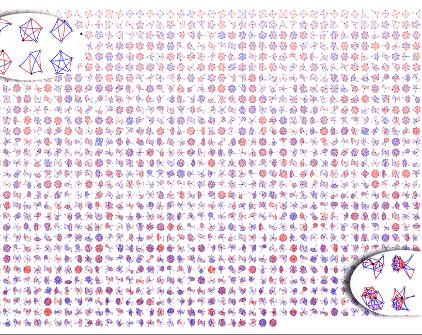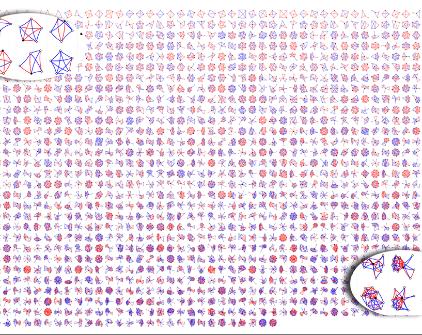
Credit: Brigham and Women's Hospital
Are healthy and unhealthy habits contagious? Can a person's social network influence their risk of disease? It's a contentious idea but one that researchers want to explore in the future and better understand. A new study by investigators from Brigham and Women's Hospital helps lay important groundwork for such studies by developing and making accessible scalable tools to allow clinical researchers to assess social networks in a robust and quantifiable way. In addition, using data from a cohort of participants in the federally funded Genes and Environment in Multiple Sclerosis (GEMS) Project, the team reports finding an association between the habits of people connected to a participant and that person's level of self-reported neurological disability. The team's results are published online today in Nature Communications.
"We find that there's a strong relationship between the health habits of people in a patient's social network and outcomes that are of interest to physicians who specialize in multiple sclerosis. This relationship must not be ignored when considering an individual with neurological disabilities. We need to ask, 'Is this person's risk based solely on their biology, or is it influenced by the healthy or unhealthy lifestyles of those around them?'" said lead author Amar Dhand, MD, DPHIL, a neurologist in the Department of Neurology at BWH.
Dhand and colleagues have developed a social network assessment tool that can be applied to any patient population. To test it, they used the tool to measure the social networks of 1,493 people at risk of multiple sclerosis. Participants were asked to complete a brief questionnaire to assess neurological disability based on the person's self-reporting of several abilities including walking, using arms and hands, vision, speaking clearly, swallowing, cognition, sensation and bowel and bladder function.
The team plotted a montage of each participant's social network (see image), finding that the average network consisted of eight people who were densely linked. The team also plotted the milieu of health habits around each participant, including exercise, smoking and seeing a doctor. The researchers found that the health habits of the people in one's social network were strongly associated with the participant's self-reported neurological dysfunction, and the percent of network members who have a negative health influence had the strongest association with disability.
While it's still early for the GEMS Project cohort – participants have been enrolled in the study for less than five years – Dhand and colleagues plan to continue assessing the relationship between participants' social networks as well as genetic risk factors and other environmental factors in the development of symptoms of MS.
"We hypothesize that there is a link between social networks and neuro-immunological function, and, downstream, we plan to look at what social network features are related to disease susceptibility," said Dhand.
###
Funding for this work was provided by National Institutes of Health grants K23HD083489, K08NS079493, and National Multiple Sclerosis Society RG-5003-A-2. The authors declare no competing interests.
Paper cited: Dhand, A et al. "A scalable online tool for quantitative social network assessment reveals potentially modifiable social environmental risks" Nature Communications DOI: 10.1038/s41467-018-06408-6
Media Contact
Johanna Younghans
[email protected]
617-525-6373
@BrighamWomens
http://www.brighamandwomens.org
Related Journal Article
http://dx.doi.org/10.1038/s41467-018-06408-6






